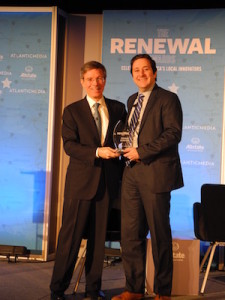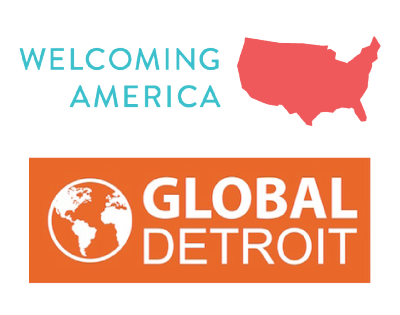WE Innovate: Intersectional training sheds light and improves support for LGBTQIA+ immigrants
/in All Blogs, Diversity, WE Innovate /by gglnadminBDC Internships: Breaking Down the Barriers to Refugee Employment
/in All Blogs, Immigrant Retention, Diversity, Refugee Resettlement /by gglnadminWE Innovate: PhillyiHub strengthens Philadelphia’s economy and neighborhood
/in All Blogs, Immigrant Small Business Owners, Immigrant Entrepreneurs, Immigrant Entrepreneurship, Diversity /by gglnadminRust Belt Innovation Leads U.S. Efforts to Utilize Untapped Immigrant Talent
/in All Blogs, Immigrant Retention, Diversity /by gglnadminInternational Students Are U.S. Business’ Best Hope For Growth
/in All Blogs, Immigrant Retention, Diversity /by gglnadminGuest Post: Celebrating Immigrant Heritage, Building Shared Futures in Global Cities
/in All Blogs, Diversity /by gglnadminBy Sara McElmurry, The Chicago Council on Global Affairs
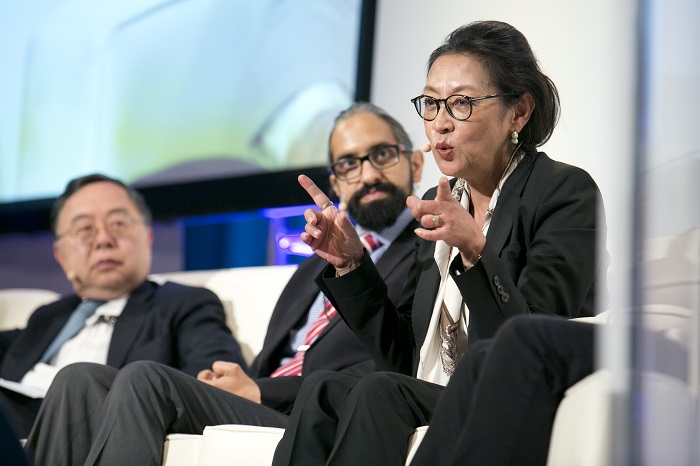
Chicago Council on Global Affairs
Chicago’s ambitions to be “the most immigrant-friendly city in the world” made it a suitable setting for rich conversations about cultural heritage and inclusion at the Chicago Forum on Global Cities on June 1-3, timed perfectly with the kickoff of Immigrant Heritage Month, a nationwide celebration of our shared heritage of diverse cultures.
Forum panelist Ronnie Chan, chairman of the Hong Kong-based Hang Lung Group, eloquently framed the theme at one of the Forum’s opening plenaries, reflecting on how the soul of a city is shaped by the generations of diverse people who have migrated through it.
That’s certainly the case for Chicago, whose unique character comes complements of those who came here from somewhere else. Much of Chicago’s mosaic of neighborhoods—Chinatown, Greektown, Little Italy, and Ukrainian Village—still bears the names of its original ethnic inhabitants. The city’s iconic foods have immigrant roots: deep dish pizza evolved out of the culinary traditions of Neapolitan immigrants, Chicago-style hot dogs from German-born residents. Chicago is home to a slew of cultural institutions—from the National Hellenic Museum to the Polish Museum of America to the National Museum of Mexican Art—that speak to the importance of the city’s immigrant heritage on countrywide level.
If cities’ souls are shaped by their past generations of immigrants, it is important to recognize that their futures—their economy and their demography—will be formed by their ability to embrace forthcoming waves of newcomers.
Critical conversations about immigrant integration and inclusion are too often challenged by today’s hyper-polarized climate of a worldwide refugee crisis, global security concerns around terrorism, and intense anti-immigrant rhetoric in the United States, Europe and beyond. But global cities—ports of entry for immigrants across the world, often more nimble and pioneering in creating integration programs and policies that their federal governments—are well-suited to be the world’s laboratories in developing and sharing best practices in this area:
- In the Gulf States, cities are championing the building of cultural institutions as “connectivity hubs” in uniting people in countries where more than 90 percent of the population is foreign-born. Sultan Sooud Al Qassemi, an Abu Dabi-based journalist, spoke about how the city’s art museums provide a means for people from diverse cultures to converge. Experiencing each other’s art “detoxifies tensions and reinforces a shared sense of humanity,” he said.
- In Germany, where the federal government is struggling to serve 1.5 million refugees, the city of Hamburg has successfully mobilized a network of local volunteers to welcome the more than 61,000 refugees who entered the city last year alone. “It’s not just the state who is responsible for the care and education [of refugees],” said Dorothee Stapelfeldt, Minister for Urban Development and Housing in Hamburg. “There are many volunteers who are going to refugees, talking to them, inviting them to coffee, tea, cakes, and playing with the children. You need a society to care about refugees.”
- In Chile, metro-level investments in infrastructure are addressing the economic inequality that plagues the country, which disenfranchises newcomers and native Chileans alike. “My job is to convince the ‘haves’ that the problems of the ‘have-nots’ are their problems,” said Claudio Orrego, governor of the metropolitan region of Santiago. Governor Orrego has championed innovative investments in infrastructure—Santiago’s best library is in one of the city’s poorest neighborhoods, for example—to create a shared sense of ownership in the city’s future.
While global cities have relatively deep pockets and large platforms to carry out their efforts, some of the most innovative work in immigrant integration is being done in smaller communities across the cash-strapped Midwest where aging populations and stagnating economies stand to benefit greatly from an influx of youthful, working-age immigrants.
The Chicago Council on Global Affairs studied the incredible momentum of these regional initiatives in its 2014 “Reimaging the Midwest” paper, which highlighted the efforts of places like Detroit, Minneapolis, and Cincinnati in establishing immigrant welcoming efforts out of their mayor’s offices, and smaller communities like Grand Island, Nebraska—population 50,000—which offers citizenship classes, health fairs, translation services, and cultural awareness events to immigrants and native-born residents alike. Chicago, for its part, offers citizenship services in libraries, provides supports for undocumented students in public schools, and provides resources to immigrant entrepreneurs.
Big or small, cities are filling the gaps created by stalled action on immigration at the federal level in the United States.
Edward Glaeser, a faculty member at Harvard University, spoke about how “cities are good for immigrants and immigrants are good for cities” in a Forum plenary around building economic equality and vibrancy in the world’s global cities. Indeed, even as immigrants often come to cities in search of opportunity, their presence represents a demographic, economic and cultural lifeline in communities across the globe, both large and small.
As global cities celebrate the unique immigrant heritage that has shaped their “souls” this month, they’d be well-served also to do some soul searching on how they can best embrace newcomers and maximize their contributions. Against a growing global rhetoric around building walls and sealing national borders, global cities can—and should—lead a constructive conversation on extending welcomes and creating strong shared futures.
This post originally appeared on The Chicago Council on Global Affairs’ Global Insight.
Global Detroit’s Pioneering Efforts Honored with National Innovation Award
/in All Blogs, Immigrant Small Business Owners, Immigrant Entrepreneurs, Immigrant Entrepreneurship, Diversity /by gglnadmin In late January, Welcoming Economies Global Network member Global Detroit was honored to receive one of the first-ever Renewal Awards, created by the National Journal and Atlantic magazines with Allstate, to recognize the innovators, grassroots organizers and problem-solvers who are making progress against the greatest challenges facing America. The awards identify and celebrate the efforts of six nonprofit initiatives across the country that are tackling vital issues, from education to economic opportunity, from health care to neighborhood revitalization.
In late January, Welcoming Economies Global Network member Global Detroit was honored to receive one of the first-ever Renewal Awards, created by the National Journal and Atlantic magazines with Allstate, to recognize the innovators, grassroots organizers and problem-solvers who are making progress against the greatest challenges facing America. The awards identify and celebrate the efforts of six nonprofit initiatives across the country that are tackling vital issues, from education to economic opportunity, from health care to neighborhood revitalization.
National recognition of Global Detroit and its immigrant economic development efforts in Detroit signals widespread acceptance of immigration as an economic development and community renewal strategy. Global Detroit received this prestigious national award on the 5th anniversary of the beginning of its first programs. In the five years since the Global Detroit study and plan were unveiled in 2010, Global Detroit has worked with its partners across metro Detroit to implement no fewer than eight of the eleven strategies in the original Global Detroit study to help the region’s economic recovery by leveraging international talent to fill regional businesses’ unmet talent needs, catalyzing the growth and development of immigrant entrepreneurs, and building a global region with competitive advantages in job creation, business growth, and community development.
Where these ideas were once met by curious looks, they are now met with interest by peers across the Midwest and Northeast, and encouraged by the support of the Network. The environment to renew America’s economy is being set by Global Detroit and its Network peers. Research into the economic impact of immigrants and refugees is easier to come by, and tangible outcomes of immigrant economic development work are evident across the Welcoming Economies Global Network.
The Renewal Awards celebrate innovators that are renewing America from the ground up despite a national system mired in stalemate. Immigration reform is no stranger to stalemate, and any type of meaningful reform appears no closer despite immigration’s now constant (and heated) seat on the political stage. Despite the gridlock in Congress, however – or perhaps because of it – local and regional efforts to effectively integrate immigrants and refugees have surged with newfound allies and energy. Over the last few years, the growth in both number and scope of these programs is astounding, and reveals a strong momentum in the emerging field of immigrant economic development.
This award, an incredible recognition of how far local immigrant economic development efforts have come, honors Global Detroit and motivates its staff, board, supporters, and partners to continue to help revitalize Detroit and the metro region. Our nation still has much work to do to make America the best it can be for all its residents. We hope the Renewal Award is a catalyst for others to work with immigrant communities producing economic opportunity for the entire region by welcoming immigrants and encouraging regional economic development efforts to play a role not just in attracting immigrants, but also in retaining them and in enhancing their role in the community’s economic and social fabric.
2015 Was an Amazing Year – 2016 Promises Even More
/in All Blogs, Diversity, Convening 2015, Guide to Immigrant Economic Development /by gglnadminBy Steve Tobocman
The beginning of 2015 was such a flurry of WE Global activity that I am having difficulty understanding how we accomplished so much. As we launch into 2016, I look forward to what I expect to be a year of promise, impact, and growth. But as we enter a year of exciting opportunities, I thought it important to reflect on just how much WE Global accomplished in 2015.
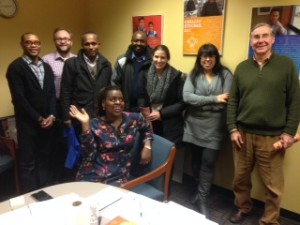 Here’s a few of the highlights:
Here’s a few of the highlights:
- City-to-City Visits – 2015 began with a burst of intense networking and relationship-building as 12 WE Global cities participated in 6 city-to-city visits during January and February to learn about the emerging work across the region.
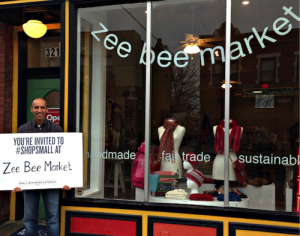 “A Day in the Life of an Immigrant Entrepreneur” Story Contest – Partnering with our friends in ethnic media at New American Media, WE Global hosted an 11-city immigrant entrepreneur story contest and published a storybook in February with all 11 winners, including awarding a $1,000 prize (drawn at random) for Julio Zegarra-Ballon, a Peruvian immigrant in St. Louis who renovated a vacant space to create Zee Bee Market and offer beautifully hand-crafted Fair Trade products from around the world.
“A Day in the Life of an Immigrant Entrepreneur” Story Contest – Partnering with our friends in ethnic media at New American Media, WE Global hosted an 11-city immigrant entrepreneur story contest and published a storybook in February with all 11 winners, including awarding a $1,000 prize (drawn at random) for Julio Zegarra-Ballon, a Peruvian immigrant in St. Louis who renovated a vacant space to create Zee Bee Market and offer beautifully hand-crafted Fair Trade products from around the world.
- H-1B Day of Action –Several WE Global members joined with local chambers of commerce to build public awareness of the contributions that high-skilled immigrant labor makes to job creation and regional prosperity.
- Launch of WE Global Network – In April the Welcoming Economies Global Network (WE Global) officially launched as a program of Welcoming America.
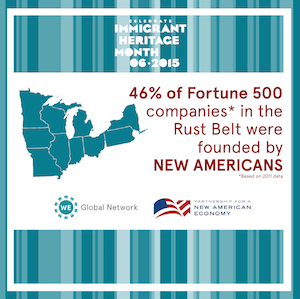 Immigrant Heritage Month – In June, WE Global members worked with welcome.us to celebrate Immigrant Heritage Month. WE Global partnered with the Partnership for a New American Economy to highlight the historic contributions of immigrant businesses in the WE Global states by analyzing the “New American” Fortune 500 firms—the Fortune 500 firms started by immigrants or their first generation children—in each state.
Immigrant Heritage Month – In June, WE Global members worked with welcome.us to celebrate Immigrant Heritage Month. WE Global partnered with the Partnership for a New American Economy to highlight the historic contributions of immigrant businesses in the WE Global states by analyzing the “New American” Fortune 500 firms—the Fortune 500 firms started by immigrants or their first generation children—in each state.
- White House Task Force on New Americans – In April the White House issued the first-ever federal strategic action plan on immigrant and refugee integration and mentioned the WE Global Network as a promising practice in building welcoming communities that focus on the economic development opportunities around integration. WE Global has continued to help bring this plan into reality, including participating with many WE Global members at the White House Building Welcoming Communities Convening in Washington, D.C. this October.
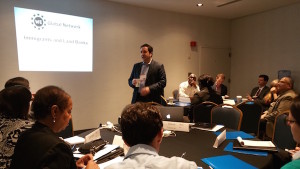 Developing Vacant Property Solutions – In May, WE Global was asked by the Center for Community Progress to convene the first-ever discussion of immigrants and land banks at the National Reclaiming Vacant Property Conference in Detroit. Nine of the nation’s largest land banks joined WE Global and national partners Partnership for a New American Economy and the Legacy Cities project to discuss the opportunities that can result from connecting land banks and vacant properties with immigrants and refugees. This initial conversation served as the impetus for a forthcoming research report exploring these opportunities in greater detail.
Developing Vacant Property Solutions – In May, WE Global was asked by the Center for Community Progress to convene the first-ever discussion of immigrants and land banks at the National Reclaiming Vacant Property Conference in Detroit. Nine of the nation’s largest land banks joined WE Global and national partners Partnership for a New American Economy and the Legacy Cities project to discuss the opportunities that can result from connecting land banks and vacant properties with immigrants and refugees. This initial conversation served as the impetus for a forthcoming research report exploring these opportunities in greater detail.
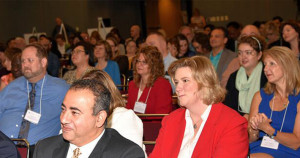 Dayton Convening – Probably the highlight of the year was the third annual WE Global Convening in Dayton in July keynoted by the White House’s Felicia Escobar. Some 300 attendees from 25 Midwest communities attended the gathering which was characterized by the relationships that were built among practitioners. Welcome Dayton did stellar work as our host and the convening coincided with the release of new research by the Partnership for a New American Economy about how Dayton has benefitted from Welcome Dayton and the growth of its immigrant population.
Dayton Convening – Probably the highlight of the year was the third annual WE Global Convening in Dayton in July keynoted by the White House’s Felicia Escobar. Some 300 attendees from 25 Midwest communities attended the gathering which was characterized by the relationships that were built among practitioners. Welcome Dayton did stellar work as our host and the convening coincided with the release of new research by the Partnership for a New American Economy about how Dayton has benefitted from Welcome Dayton and the growth of its immigrant population.
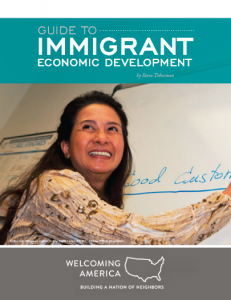 Guide to Immigrant Economic Development – In conjunction with the Dayton convening in July, Welcoming America released its Guide to Immigrant Economic Development written by WE Global Co-Chair Steve Tobocman (with tremendous help from Global Detroit staff, as well as Welcoming America’s Susan Downs-Karkos and Rachel Peric). The Guide includes 13 chapters to help local economic development agencies, chambers, mayors, city councils, nonprofit organizations, and advocates develop innovative programming that integrate immigrants and refugees into their local economies to create jobs and growth that impact the entire region.
Guide to Immigrant Economic Development – In conjunction with the Dayton convening in July, Welcoming America released its Guide to Immigrant Economic Development written by WE Global Co-Chair Steve Tobocman (with tremendous help from Global Detroit staff, as well as Welcoming America’s Susan Downs-Karkos and Rachel Peric). The Guide includes 13 chapters to help local economic development agencies, chambers, mayors, city councils, nonprofit organizations, and advocates develop innovative programming that integrate immigrants and refugees into their local economies to create jobs and growth that impact the entire region.
- CEOs for Cities, National Immigrant Integration Conference, and other speaking engagements – Throughout the year, WE Global was invited to present the exciting work going on throughout the Network to a wide variety of audiences, including CEOs for Cities, the National Immigrant Integration Conference, refugee resettlement groups, and even a state health endowment. In 2016 we hope to connect our innovative perspective with more diverse audiences of economic development actors, business leaders, and local officials.

